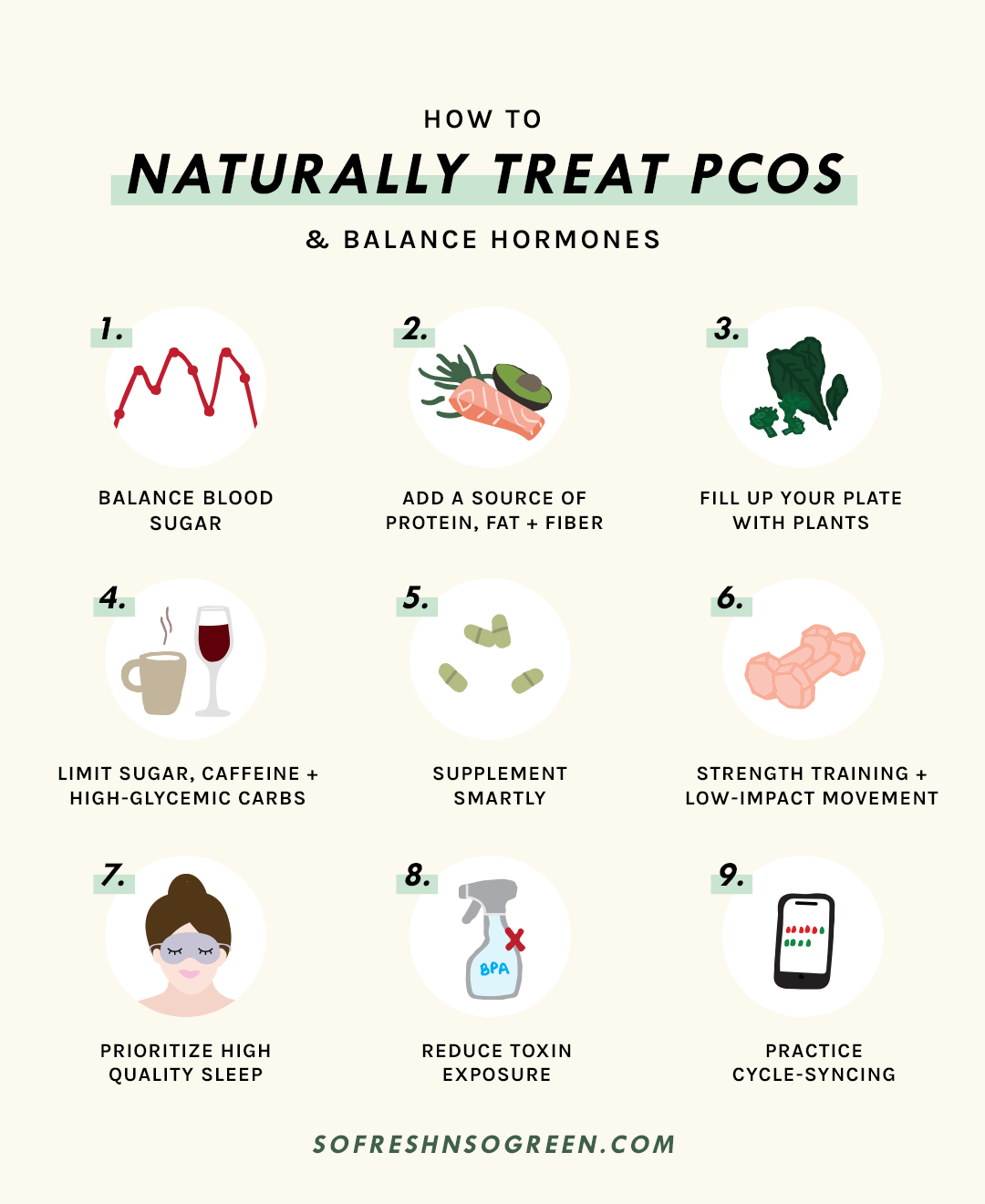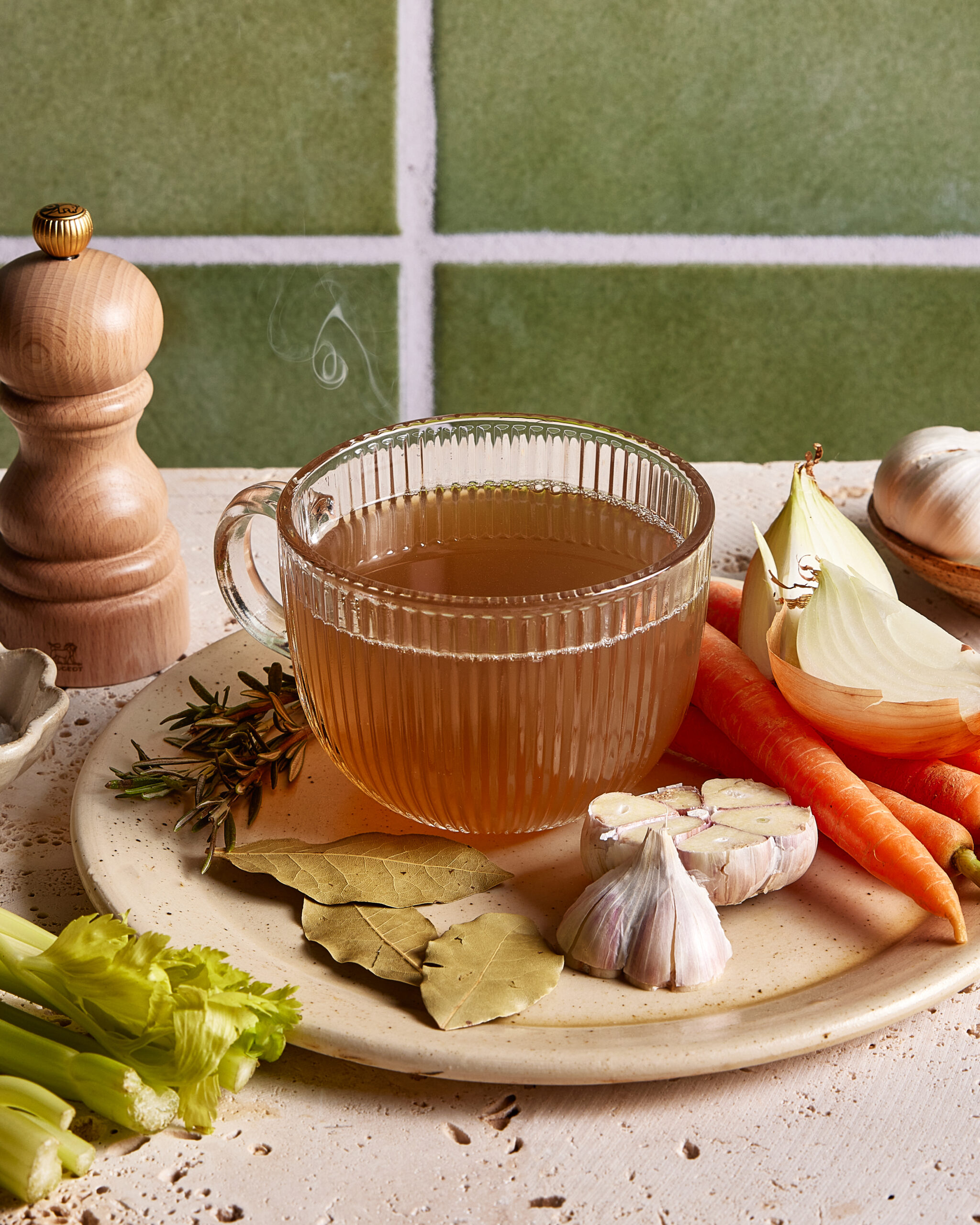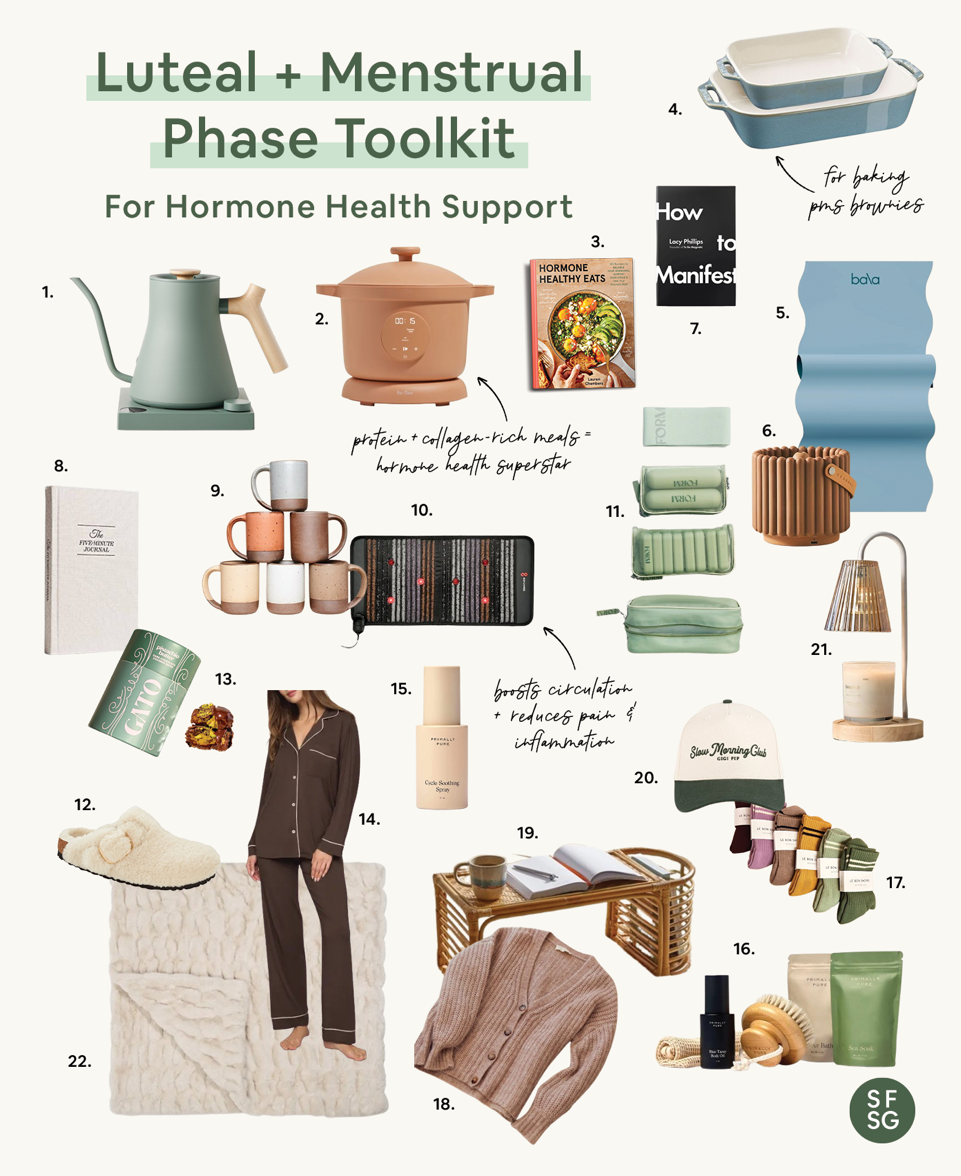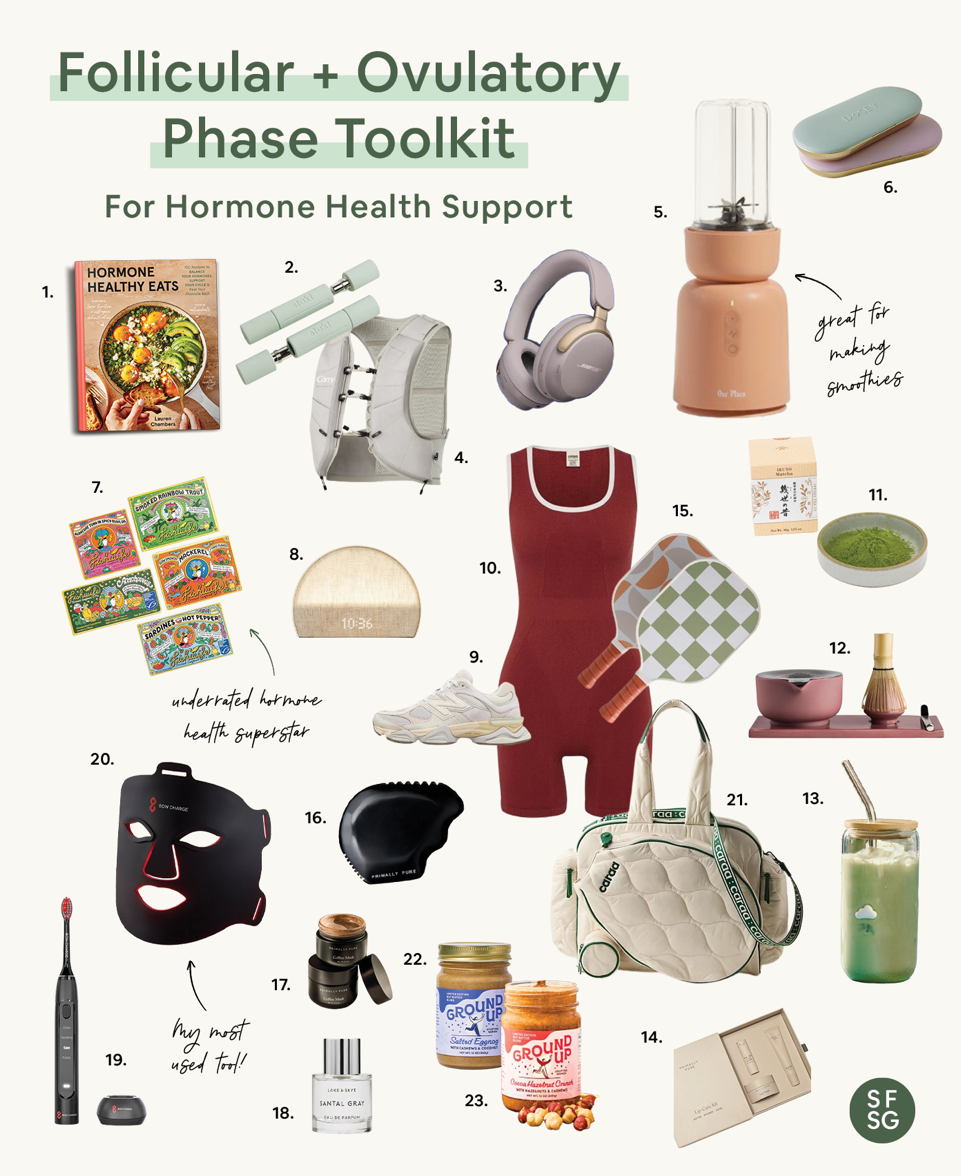recipes
lifestyle
wellness
motherhood
mindset
About
E-Books
Blog
Freebies
partnerships
hi, i'm lauren!
hey there!
I’m on a hot mission to help you balance your hormones & live your best life.
categories
Home
Quiz
Get In Touch
The Course
search:
Cookbook
Recipe key
GF
VG
P
Vegan
Gluten Free
Paleo
DF
Dairy-Free
download now
Join Hormone Healthy Eats!
Become a SFNSG insider to get my monthly Substack, Hormone Healthy Eats! Packed with the latest hormone-healthy recipes
+ tips.
jump to recipe >
WHAT IS PCOS?
PCOS, short for Polycystic Ovarian Syndrome, is a hormonal health condition that affects an estimated 1 in 10 women during their reproductive years.
There are several types of PCOS, each with a multitude of symptoms, however women with this condition tend to have an overproduction of male hormones (called androgens) that lead to the prevention of ovulation, making it the leading cause of infertility among women of childbearing age.
PCOS has also been shown to increase risk of long-term health conditions including insulin resistance, diabetes, heart disease, obesity, infertility, metabolic syndrome, miscarriage, liver inflammation, anxiety, depression and endometrial cancer.
While this may sound a bit scary and overwhelming, the good news is there are plenty of tools to help you effectively treat PCOS, reverse symptoms and still get pregnant naturally. Read below for a guide to help you navigate the different PCOS symptoms and approaches in order to balance PCOS hormones naturally and feel your best.
Wondering if you have PCOS or another hormonal imbalance? Take this free quiz to investigate.
Wondering if you have PCOS or another hormonal imbalance? Take this free quiz to investigate.
SYMPTOMS OF PCOS
PCOS may present differently in each woman, making it somewhat confusing to diagnose. However, common symptoms of PCOS include:
+ Long (35+ days) or irregular cycles that rarely result in ovulation
+ Missing periods
+ Excessive body or facial hair (hirsutism)
+ Loss of hair on the head (male pattern hair loss)
+ Acne (primarily around the jawline, chest and back)
+ Weight gain (especially around waistline) or inability to lose weight
+ Difficulty getting or staying pregnant (mostly due to lack of ovulation)
+ Insulin resistance or dysregulated blood sugar
+ Anxiety or depression
+ Polycystic Ovaries
It’s important to note not all women with PCOS have polycystic ovaries, and not all women with polycystic ovaries have PCOS. Healthy women have been found to have polycystic ovaries 25% of the time.
CAUSES OF PCOS
The exact cause (or causes) are unknown, but researchers believe a number of factors may play a role, including:
+ Genetics (passed down genetically)
+ Dysregulated insulin or blood sugar
+ Environmental factors (processed food, hormonal birth control, too much caffeine or alcohol, chronic inflammation, exposure to toxins, etc.)
TYPES OF PCOS
There are four sub-types of PCOS and knowing which type you have can make all the difference in choosing the most effective treatment protocol (in western medicine, each type of PCOS is managed with the same treatments, even though these treatments only work for some women some of the time.)
The four different sub-types of PCOS are:
+ Insulin-Resistant PCOS
The most common type of PCOS, where high insulin levels interfere with ovulation, causing irregular cycles and other symptoms like weight gain, weight loss resistance, acne, body and facial hair, mood swings, and male pattern hair loss. Women with this kind of PCOS usually have blood sugar and insulin levels that suggest diabetes or pre-diabetes.
+ Inflammation-Based PCOS
This type of PCOS is most often seen in women who are NOT overweight and don’t present with the classic symptoms of PCOS. Inflammation can be caused by a variety of factors, including food sensitivities, exposure to environmental toxins, gut conditions or digestive disorders, and a nutrient-void diet reliant on sugar, sweeteners, carbs and processed foods.
+ Synthetic Hormone-Induced PCOS
This kind of PCOS is common for women who have been on the pill or other forms of hormonal birth control like the IUD, shot, or ring, for a long period of time. The synthetic hormones shut down communication between the pituitary gland and the ovaries in order to prevent pregnancy, preventing or delaying a period and healthy cycle from returning.
+ Adrenal PCOS
Most women with PCOS have an elevation of all androgens including testosterone and androstenedione from the ovaries and DHEAS from the adrenal glands, but if you have only elevated DHEAS (but normal testosterone and androstenedione), then you may have adrenal PCOS, which accounts for about 10 percent of PCOS diagnoses. Adrenal PCOS is not driven by insulin resistance or inflammation. Instead, it’s an abnormal response to stress.
***It’s possible to have a combination of these four types of PCOS, or for the root cause of your PCOS to evolve over time.
DIAGNOSING PCOS
Unfortunately, women often develop PCOS in their teens but are not properly diagnosed until their 20’s or 30’s.
A physician can diagnose PCOS based on several factors (called the Rotterdam Criteria). In order for a woman to be diagnosed she must meet two out of the three following criteria:
+ Oligo-ovulation
Aka irregular ovulation resulting in anovulatory cycles and irregular periods.
+ High Androgen Levels
High readings on a blood test or physical symptoms like acne, excess face and body hair, male pattern hair loss, weight loss resistance and excess weight around the midsection.
+ Polycystic or enlarged ovaries
Typically detected via ultrasound, physical exam or pelvic exam. With diagnosing, it’s important to note that PCOS cannot be definitively diagnosed by an ultrasound because it is actually normal for ovaries to have ovarian follicles (cysts). Healthy women can often have multiple ovarian follicles at once, making an ultrasound finding of multiple cysts meaningless on its own when it comes to diagnosing PCOS.
DEBUNKING COMMON PCOS MYTHS
PCOS is still widely misunderstood, and there’s a lot of confusion out there when it comes to effectively diagnosing and treating this condition. Here’s a few myths you might have heard that are important to debunk immediately:
+ Symptoms of PCOS are the same for all women
Completely untrue, women can present with a variety of symptoms and characteristics.
+ Women with PCOS can’t get pregnant
It may be more difficult (due to irregular or lack of ovulation) but women can still get pregnant with their own eggs.
+ Birth Control Cures PCOS
The pill is able to mask some symptoms by suppressing your natural hormone production, but it does absolutely nothing to address the underlying causes of PCOS and can worsen the condition/ increase other health risks long-term.
+ Metformin Cures PCOS
Metformin works by reducing overall insulin levels, which are often elevated in women with PCOS. That being said, most of the research shows differing and conflicting results, mostly because Metformin is given to women with a PCOS diagnosis regardless of the kind of PCOS they have. Again, insulin-resistant PCOS is very common, but it’s not what every woman has.
+ Having Your Ovaries or Uterus Removed Cures PCOS
PCOS presents in so many more ways than just cysts on your ovaries, thus removing reproductive organs does nothing to cure the condition.
+ You Don’t Need To Worry About PCOS if You’re Not Trying To Get Pregnant
Because the condition affects so many aspects of your general health, its impact on fertility is not the only concern, making it important to treat either way.
FERTILITY AND PCOS
As mentioned above, it is a complete myth that you cannot get pregnant with PCOS. While PCOS does make it more difficult to conceive (primarily by delaying or preventing ovulation, a necessary component of fertility) you can naturally treat and even reverse symptoms through nutrition and lifestyle changes. I know firsthand plenty of clients and women who have successfully conceived and birthed healthy babies with PCOS, and I want to empower you with tools to help you do so as well!
If you need more nutrition + lifestyle tips, recipes, encouragement and support on your journey to getting pregnant with PCOS, check out my Fertility-Boosting Fundamentals Guide.
YOUR GUIDE TO BALANCING PCOS HORMONES NATURALLY
If there’s one thing I want every woman out there with PCOS to know, it’s that you do not need to rely on invasive medical options or drugs like metformin and birth control that include a long list of side-effects.
In fact, emerging research shows PCOS is most effectively treated with simple nutrition and lifestyle modifications, which resolve hormone imbalances associated with PCOS and reverse symptoms (and BONUS these methods are healthier for you all around without having any nasty side effects).
Below are my top tips to help you balance PCOS hormones naturally, however please keep in mind that each PCOS case is different, and you will need to experiment to find a targeted approach that is right for you.
+ Balance Blood Sugar
As you’ve learned, insulin resistance and dysregulated blood sugar is one of the most common indicators and symptoms of PCOS. In fact, blood sugar balance is key for all healthy hormone function, and engaging in activities that disrupt it (i.e. regularly eating sugar or processed food, over-consuming alcohol or caffeine, skipping meals, strict diets or intermittent fasting, high stress activities, not sleeping, etc.) can damage a woman’s eggs, deplete other hormones critical for a healthy pregnancy and conception, contribute to irregular menstrual cycles and worsen PCOS symptoms.
The goal to regulated blood sugar is goldilocks style — not too high, not too low, balanced and just right. Disengaging with the behaviors listed above and focusing on nutrient-dense meals with an optimal balance of protein, fat and fiber ensure your blood sugar levels stay stable, priming your body for a healthy cycle and reduced symptoms.
+ Add A Source of Protein, Fat + Fiber To Every Meal/Snack
As mentioned above, balancing blood sugar is key to reversing PCOS symptoms, and one of the most effective ways to do this is through food! My top tip is to make sure each meal and snack you consume has a healthy balance of high quality protein (eggs, legumes, grass-fed meat, pasture-raised poultry, wild-caught seafood), fat (avocado, nuts, seeds, nut/seed butter, ghee, olives, extra virgin olive oil), and fiber (ALL veggies, fruit, complex carbs like quinoa, buckwheat, millet and oats).
This combination works to satisfy your body’s macronutrient needs, optimize energy, curb blood sugar spikes/crashes, and release the hormone Cholecystokinin from your gut, signaling to the rest of your body that you are full and satiated (i.e. you won’t be hungry in an hour).
+ Fill Up Your Plate with Plants
While the research is mixed on whether or not PCOS can be treated with a plant-based diet, we do know plant foods like leafy greens, cruciferous and root veggies, berries and citrus, etc. to be rich in micronutrients, phytonutrients and fiber that work to balance blood sugar, combat insulin resistance and lower inflammation in the body — all of which can drastically help reduce PCOS symptoms.
I like to focus on an add-in vs. take away mentality, and approach every meal with the protein, fat, fiber concept, which emphasizes plants (especially vegetables) at every meal.
**When consuming cruciferous vegetables like broccoli, kale, cauliflower, cabbage, etc. it’s important to cook them first. This significantly reduces goitrogens, which can suppress thyroid function and contribute to PCOS.
+ Limit Sugar, Caffeine + High-Glycemic Carbs
While I’m a big fan of adding things in vs. taking them away, overconsumption of these substances can mess with our blood sugar (which you now know has a detrimental affect on your fertility and PCOS). Caffeine also impairs your liver, which can impact your body’s ability to naturally detoxify and lead to a buildup of hormones, worsening conditions over time.
Try swapping sugar in recipes for small amounts of less processed forms (dates, fruit, maple syrup), switching coffee for matcha, mushroom coffee or decaf, and substituting high-glycemic carbs like white rice, bread, pasta, cereal etc. for more complex versions made with chickpeas and legumes, quinoa, millet, buckwheat, oats and nuts/seeds.
+ Supplement Smartly
Supplementing with PCOS can be tricky, and it’s important to know which sub-type of PCOS you have in order to get as targeted as possible to your symptoms and root cause. Please read through each supplement recommendation thoroughly and discuss with your medical practitioner before taking, especially if you don’t know which type of PCOS you have.
+ To Reduce Inflammation — Curcumin, Omega 3’s, Co enzyme Q10, Resveratrol, Cinnamon, Zinc, Probiotics
+ To Lower Testosterone — Saw Palmetto, Licorice, White Peony, Spearmint, Zinc
+ To Increase Progesterone — Vitamin B6, Vitex/Chaste Berry **Vitex can actually worsen PCOS for some because their LH levels are already high. If you know your LH level is high (if you don’t know – ask for a hormonal panel blood test from your doctor), you should not use Vitex
+ To Improve Insulin Sensitivity — Myo-inositol, Berberine, Magnesium, Cinnamon, Lipoic Acid
+ To Boost Adrenal Health — Magnesium + Adaptogens like Ashwagandha and Reishi
+ To Boost Fertility/Improve Egg Quality — Co Enzyme Q10, Myoinositol, Melatonin
+ Strength Training + Low-Impact Movement
While research has shown that just 20 minutes of high intensity exercise per day dramatically reduces insulin resistance in PCOS patients, clinical studies are now showing resistance training to be the most potent exercise modality for counteracting insulin resistance in PCOS. Either way, you can’t go wrong with getting in consistent exercise/movement, in whatever form feels best for you.
+ Prioritize High Quality Sleep
Sleep is a crucial component of health, whether or not you have PCOS. However getting enough restorative, quality sleep can be especially beneficial for women with PCOS, since it works to increase insulin sensitivity, balance blood sugar and reduce carb cravings.
Try creating a wind down routine or calming nightly ritual (bath, reading, dim lights, tea, etc.) and getting off all electronic devices at least 1-2 hours before bed to avoid blue-light exposure (which disrupts melatonin production, leading to difficulty sleeping).
+ Reduce Toxin Exposure
Consistent exposure to chemicals puts both your hormone health and fertility at major risk and can dramatically enhance uncomfortable PCOS symptoms. Research has shown that many of our everyday products (think makeup, lotion, shampoo, laundry detergent, cleaning supplies, nail polish, etc.) contain bio accumulative toxins that stay in our systems indefinitely, creating disease-causing free radical damage and blocking the body’s natural hormone production, leading to imbalances that can show up as infertility, heavy periods, thyroid disease, PCOS, endometriosis, fibroids, cysts, etc.
Opting for clean products when possible is key to reversing PCOS symptoms and protecting your fertility and hormone health. Check out my shop page for some of my favorite nontoxic products and tips.
+ Practice Cycle-Syncing
Understanding your monthly cycle is like being given a blueprint for your body and brain, empowering you to tap into your unique strengths all month long, as well as reduce any uncomfortable symptoms caused by PCOS or other hormone imbalances.
Supporting your hormone fluctuations through each phase of your cycle also works to regulate your period and increase chances of ovulation (irregular periods + anovulation commonly present in women with PCOS) a crucial component of fertility and your overall health.
To learn more about how to understand and support your menstrual cycle, check out my FREE Cycle-Syncing Cheatsheet, or for a full plan with a month’s worth of recipes, supplements + herbs, lifestyle tips etc., snag a copy of my 28-Day Hormone Balance Reset Plan here.
BOTTOMLINE
If you are one of the 1 in 10 women dealing with PCOS and it’s multitude of uncomfortable symptoms, I hope after reading this post you feel empowered by the abundance of tools out there (sans side effects) to assist you in balancing PCOS hormones, reversing symptoms, getting pregnant naturally and feeling your best.
If you have not yet been diagnosed with PCOS but identify with the symptoms listed, I encourage you to seek out help from a functional medicine practitioner specializing in hormone health and PCOS.
Lastly, if your doctor tries to prescribe you birth control, drugs or an invasive medical procedure, I highly advise you to get a second opinion (especially if it doesn’t feel right for you). Nobody knows your body better than you, and becoming your own health advocate will help you narrow in on the approach that is best for you.
MORE HORMONE BALANCING PCOS RESOURCES
+ PCOS-Friendly Recipes
+ Progesterone-Boosting Foods + Recipes
+ Best Supplements + Herbs To Balance Female Hormones Naturally

If you loved that...

01.

02.

03.

04.

05.
hey!
Keep Browsing
Site
Keep Browsing
Site
the
about
e-books
blog
downloads
quiz
Welcome friend, I'm lauren.
I’m honored to support you on your journey to optimal hormone health + happiness. Thanks for being here babe.


